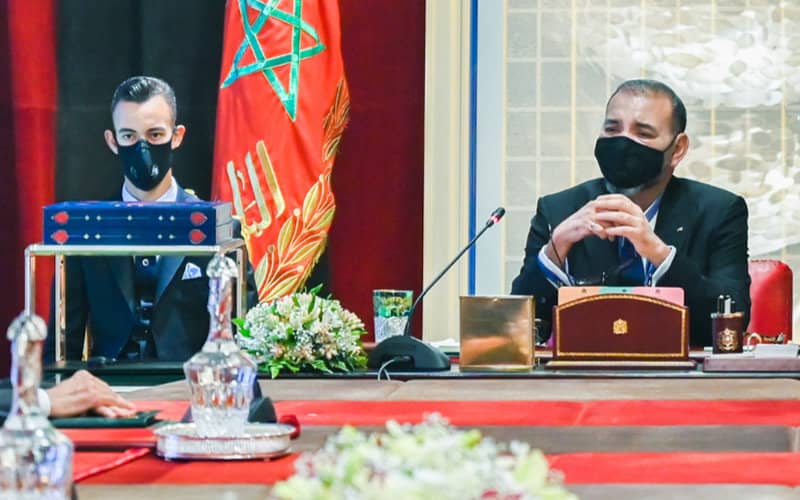Morocco’s King Mohammed VI Chairs Council, Approves Tax Reform Framework

A council of ministers was held on Monday, June 28 at the Royal Palace in Fez, under the effective chairmanship of King Mohammed VI. Two framework laws, a draft law and several draft decrees and international conventions were adopted.
The council of ministers began with a presentation by the Minister of Economy, Finance and Administration Reform on the draft framework law on tax reform. This is a text prepared in application of the royal guidelines and based on the recommendations of the national tax conference held in May 2019. This project aims to establish an efficient, fair, equitable and balanced tax system that mobilizes all tax potentials to finance public policies, promote economic development and achieve social inclusion and cohesion.
After this presentation, Mohamed Benchaâboun presented the main lines of the draft framework law on the reform of public establishments and enterprises (EPP) developed in accordance with the royal guidelines. This project aims to establish the principles and objectives governing the comprehensive and progressive reform of public sector entities, in particular through the implementation of a program to restructure EPPs by grouping or merging them or by dissolving and liquidating them, the regulation of the creation of new public establishments and enterprises and their participation in the capital of private companies, and the adoption of a contractual approach between the State and these establishments and enterprises in order to increase their performance and improve their governance.
These two framework laws were adopted by the council of ministers. The council also approved a draft law amending and supplementing the law on the prohibition of the development, manufacture, stockpiling and use of chemical weapons and on their destruction, which was adopted as part of the Kingdom’s ratification of the international convention on this subject. The King validated a draft decree exempting the beneficiaries of the martyrs of the nation, the disabled during military operations and the repatriated and rallied military personnel from land registry fees and charging the National Agency for Land Registry, Cadastre and Cartography with the costs of establishing the technical files carried out on their behalf.
Regarding the military field, the sovereign, Chief of Staff of the Royal Armed Forces, gave his approval for two draft decrees relating respectively to the application of the law on defense and security materials and equipment, weapons and ammunition, and that relating to cybersecurity.
As part of Morocco’s respect for its international commitments and its efforts to strengthen cooperation and partnership with a set of brotherly and friendly countries, the council of ministers approved 11 international conventions, including three bilateral and eight multilateral conventions. The multilateral conventions concern the African, Arab-Islamic and multilateral international spaces.
At the end of the council’s work and in accordance with the provisions of Article 49 of the Constitution and on the proposal of the Head of Government, and on the initiative of the Minister of Economy, Finance and Administration Reform, King Mohammed VI appointed Hicham Zenati Serghini as Director General of the National Company for Guarantee and Financing of the Enterprise; Youssef El Bari as Director General of the Moroccan Agency for Investment and Export Development and Mohamed Kenbib as Director of the Royal Institute for Research on the History of Morocco.
Related Articles
-

Moroccan Workers Protest Unpaid Millions at Saudi Prince’s Palace in Tangier
3 September 2025
-

Ryanair Slashes Spanish Routes, Shifts Focus to Morocco and Italy Amid Airport Tax Hike
3 September 2025
-

Morocco Bolsters Air Force with 10 Cutting-Edge Caracal Helicopters from Airbus
3 September 2025
-

Marrakech Rattled: 4.5 Magnitude Aftershock Strikes as Reconstruction Efforts Forge Ahead
3 September 2025
-

Morocco’s High-Speed Rail Revolution: Casablanca Undergoes Massive Transformation for TGV Expansion
3 September 2025